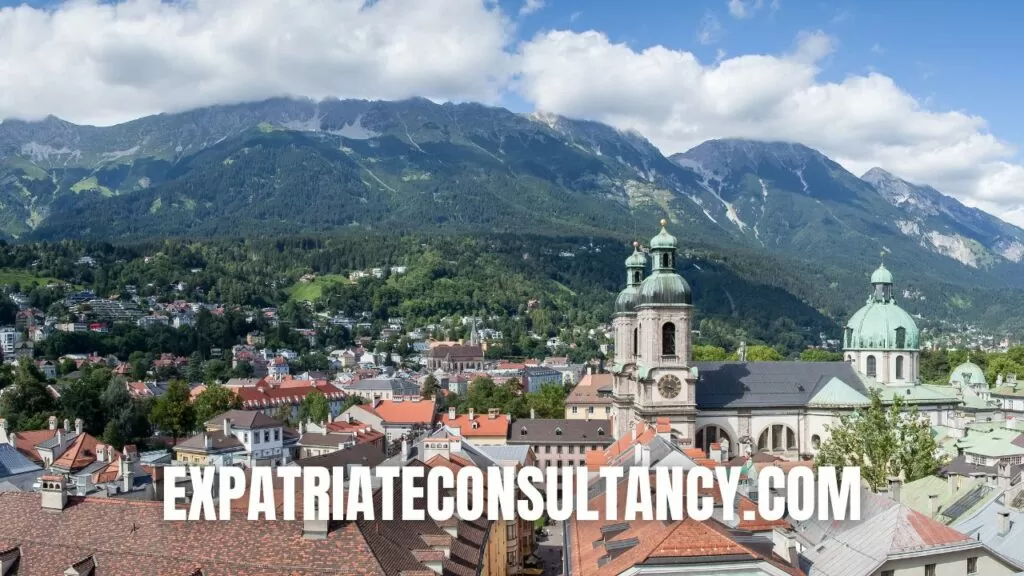The Best Places to Retire in Europe For English Speakers (And Not Only)
More people are retiring abroad in the last few years than ever. They do so based on their tastes, the host country’s well-being and leisure, its natural environment, and its legacy. This article came about the best places to retire in Europe because a lot of people use Google to look for answers to questions like: … what destinations offer the best quality of life for retirees. Additionally, factors like cost of living, healthcare accessibility, and cultural experiences play a significant role in their decision-making process. For those considering options within Europe, retirement advantages in Hungary, such as its affordable lifestyle, rich history, and welcoming communities, make it an appealing choice for many retirees seeking a fulfilling life abroad. While many retirees thrive in vibrant locations, it’s also important to check the Europe’s least desirable retirement spots, where factors such as limited healthcare services and high living costs can detract from one’s experience. Researching these less favorable destinations can provide valuable insights, helping future retirees avoid potential pitfalls. Ultimately, making an informed choice will ensure a rewarding and enjoyable retirement abroad.
Where is the best place to retire outside the US?
or
What are the best places to retire for English speakers?
We all know that the U.S. has a high cost of living while living costs in many European countries are much lower. But even though retirement income is usually reduced by taxes, retirees can still end up with more disposable income if they live outside the U.S. For instance, many retirees find that the cost of living in southern Europe is significantly lower than in the States, allowing them to stretch their retirement savings further. This can lead to an improved quality of life, with access to affordable healthcare, fresh local produce, and vibrant cultural experiences. Ultimately, the financial benefits of relocating can make retirement more enjoyable and stress-free.
That is why some of our most visited articles are about retirement in warm, low-cost countries like:
- How to retire in Bali (Indonesia)
- Retire to Jamaica
- Retirement in The Dominican Republic
- Retirement in Nicaragua
- Retiring in Argentina
There are also European countries not on this list but are still worth considering if you are thinking about retiring abroad, like Finland and Croatia. If you are considering retiring overseas, our list of 24 countries with retirement visas deserves a look.
If instead of retirement, you are looking for a place to start a business, check our list of 10 business-friendly countries in 2023. On the other side, if you are looking for a place to retire on the western side of the Atlantic Ocean, check out our article about retirement in Uruguay.
A curiosity that I discovered: among the best places to retire in Europe, there are even HBO filming locations!
The Criteria to Define the Best Cities in European Countries to Retire Abroad
Instead of just rewording some existing lists, we at The Expatriate Consultancy made this rank of the best places to retire in Europe using criteria carefully selected.
As said before, the first criterion of this list is that all those places are in Europe. If you are thinking about retirement not only in the old continent, there is another list of the best countries to retire from anywhere in the world. But if you are not thinking about retirement but rather living abroad and working remotely, we also made a ranking of the best cities for remote workers.
Now to the criteria we used:
Living Costs
The Cost of Living Index by Country in 2021 is the first criterion we’ll analyze.
Numbeo, the world’s largest cost repository, compiles it. It’s a crowd-sourced database with data on housing, healthcare, and other costs of living around the world. Lower costs are important for retirees abroad since their income is often defined by their country of origin, and not flexible — unless the person has multiple income streams, and in this case, congratulations!
The lower the score of the cost of living index, the better.
The Health Care Index
The Health Care Index is a statistical look at the overall quality of the medical system, including how satisfactorily doctors, nurses, and other workers do their jobs; the cost sustainability; how frequently top-tier medicine is available; and how prepared the government is to help. It also takes into account external factors like sanitation and public health. The study ranks 89 countries based on five distinct health indicators.
While public healthcare is complex, there are many ways to determine the best systems. We will use the CEOWorld Magazine’s “Health Care Index” as a basis. We used this indicator before in our article about medical education abroad.
Safety
With an increasing number of older adults living alone, it’s more important than ever to ensure their safety.
In our ranking, the safety element will be considered based on the homicide rate as defined by the United Nations Office on Drugs and Crime (UNODC). That means the number of murders per 100 thousand inhabitants. Of course, there are other types of crimes like robbery or kidnappings, but often they fluctuate in line with homicides.
English speaking population
This is especially important for Americans, Canadians, and people from English-speaking countries who are willing to retire abroad.
Even in a safe, inexpensive country with a good public health system, life can be difficult if you cannot order a food delivery because of the language barrier. The numbers used are from multiple sources, including national censuses.
This factor was calculated on a country level.

The 10 Best Places to Retire in Europe
10— Ljubljana, Slovenia: The Safe and Inexpensive Slovenian Capital.
Cost of Living Index: 97
Health Care Index: 39.85
Safety (Homicides per 100 thousand people): 0.5
English-speaking population (National level): 59%
Recommended tourist attraction: On this small-group day excursion from Ljubljana, see Slovenia’s three most popular sights.
Ljubljana is a compact city with a lot to offer in terms of culture, entertainment, and history. This city is also a great place to retire because it is relaxing and peaceful.
The most appealing aspect of Slovenia’s capital is its low living costs, which allow for a significantly higher standard of living than in the United States (for the same amount of money). It is the third least expensive city in this ranking, with a cost of living index of 97.
The health care index is 39.85, indicating that Ljubljana is not one of the best in this factor, but it is the safest, with a homicide rate of only 0.5, one of the lowest of all European capitals.
To put it into perspective, Chicago in the United States has a homicide rate of 28, which is 5500% higher than Ljubljana.
09 — Bordeaux, France
Cost of Living Index: 116
Health Care Index: 65.38
Safety (Homicide Rate): 1.2
English-speaking population (National level): 39%
Recommended tourist attraction: Spend a half-day in Saint-Emilion, a lovely medieval town near Bordeaux, and discover this UNESCO village.
Check also our article Pros and Cons of Living in France
Why is Bordeaux a great place to retire?
Short answer: It has a relatively low cost of living, good health care, and is safer than most places. Plus it has a large expatriate community.
Bordeaux is widely considered to be one of France’s most beautiful municipalities and is among the 5 fastest-growing cities in Europe. It’s easy to understand why.
It was rebuilt after being bombed during World War II and now has a population of approximately 250,000 people. It is located in the southwestern part of the country, close to the Atlantic Ocean. A large number of parks and gardens can be found in this city, popular among both residents and visitors alike.
The mild climate and good infrastructure make it a favorite retirement destination abroad for British people, for example (besides the many entertainment options, like wineries and golf courses). In addition to the appealing lifestyle, the cost of living in certain areas can be quite affordable, allowing retirees to enjoy a comfortable life without breaking the bank. As British expats seek a more laid-back lifestyle, they are increasingly looking into diverse retirement options in southern France that cater to various interests and budgets. With picturesque villages and stunning landscapes, it’s easy to see why many consider this region their ideal home for retirement.
08 — Algarve, Portugal
Cost of Living Index: 93
Health Care Index: 49.58
Safety (Homicide Rate): 0.8
English-speaking population (National level): 27%

To retire there is likely one of the most popular ideas among retirees prospecting European destinations to the point that we wrote an entire article about the best places to retire in Portugal. It is easy to understand why: sandy beaches, a Mediterranean and Atlantic coastline, and idyllic scenery, Portugal offers all that and much more.
Portugal also offers tax benefits when compared to neighboring Spain, since income from abroad (like pensions) is taxed only at 10% instead of 20%.
People from all over the world travel to the Algarve region in search of sunny skies (the best month to visit Portugal is July) and warm temperatures. With a Cost of Living Index rating of 93, it also has some of the most affordable prices in Europe to retire, and the least expensive place in this Top 10.
When it comes to safety, the Algarve presents little danger. The homicide rate is 0.8 per 100,000 people (Los Angeles has a rate almost seven times higher).
The level of English speaking population in this region is 27%. Due to the large number of foreign visitors who come to this location, it’s worth noting that an increasing number of people are fluent in English as well as Portuguese in this area, which is also a culinary paradise.
Algarve is a retirement destination that is especially attractive for those who are active and enjoy the outdoors.
07 — Valletta, Malta: The Best Place to Retire in Europe as an American.
Cost of Living Index: 117
Health Care Index: Not Available
Safety (Homicide Rate): 1.6
English-speaking population (National level): 89%
Recommended tourist attraction: The greatest way to see Malta’s UNESCO-listed capital is on foot.

Of all the cities listed here, Valetta has the worst result in terms of safety, with a homicide rate of 1.6 per 100 thousand residents — this is still considered safe by most standards and it is less than half of the homicide rate of New York City.
Valetta is also the most expensive city in this top 10, with a cost of living index of 117.
So why is it still in 7th place? For three reasons:
- An enchanting climate.
- A considerable expatriate community lives in Malta and adapted very well — 14% of the country are foreigners. It is also considered one of the top 10 best cities in Europe for beach holidays.
- The highest, by far, level of English-speaking population among the cities listed, with 89% of the inhabitants dominating the language.
Curious fact: Due to its historical monuments, the entire city of Valetta is a UNESCO World Heritage site. It is also the 3rd most beautiful capital in Europe, in my opinion.
06— Pescara, Italy
Cost of Living Index: 106
Health Care Index: 44.43
Safety (Homicide Rate): 0.6
English-speaking population (National level): 34%
The majority of people wish to retire in a warm climate, safe, and with a low cost of living. Pescara has all of these things, plus a few surprises.
Pescara is a historical city founded by the Ancient Romans over two thousand years ago, and it has always been an important commercial port in the Abruzzo region. It has pleasant weather all year; not too hot in the summer and not too cold in the winter. The city’s medieval town (Pescara Vecchia) is small but charming.
Since 2013, the Abruzzo region has been named one of the best places in the world to retire by Live and Invest Overseas.
Read also: Is Rome, the mighty Italian capital, safe to visit?
05 — Innsbruck, Austria: World-Class Healthcare.
Cost of Living Index: 114
Health Care Index: 71.32
Safety (Homicide Rate): 1
English-speaking population (National level): 73%
Recommended tourist attraction: Enjoy stunning mountain views on a round-trip cable car ride between Innsbruck and Nordkette.

Located in central Europe, Innsbruck is well-known for its snow sports and relaxing mountain landscapes. This medieval-era Austrian city is well-known for its culture and entertainment offerings on a global scale.
Innsbruck is the second most expensive city on this list, after Valletta, but it is still much cheaper than large American cities.
Because it is the capital of the Austrian state of Tyrol, Innsbruck has excellent infrastructure. This is also true for their healthcare system, which received the highest rating of any city on the list. Innsbruck is not only one of the best places to retire in Europe but also one of the best places to live among cities in European countries.
04 — Alicante, Spain
Cost of Living Index: 99
Health Care Index: 64.66
Safety (Homicide Rate): 0.6
English-speaking population (National level): 22%
Recommended tourist attraction: Enjoy a delectable introduction to Alicante’s historic winemaking traditions.
One more city from southern Europe on this list, but not the last one.
Alicante’s climate is unrivaled. Over 300 sunny days per year. Its summer climate is dry and hot, while its winter climate is mild due to the city’s proximity to the sea and the mountains, which protect it from the cold air. For seniors who suffer from cold weather, this is especially beneficial. 18 degrees is the annual average temperature.
The cost of living, with a score of only 99, is another important factor to consider. Alicante has reasonable prices for housing (both purchase and rental), transportation, and food. It also has a well-connected airport and it is less than 200 kilometers from Valencia, one of the largest urban areas in Spain.
While only 22% of the Spaniards speak English, this percentage is probably higher in Alicante due to their touristic appeal. Besides, Spanish is one of the easiest languages for English speakers to learn. If you are planning to move, check out our tips on immigration to Spain.
03 — Split, Croatia
Cost of Living Index: 90
Health Care Index: 42.31
Safety (Homicide Rate): 0.6
English-speaking population (National level): 60%
Recommended tourist attraction: On this day trip from Split, sail to Croatia’s natural blue cave.

Split, Croatia’s second-largest city, has many of the country’s most intriguing landmarks and attractions, like the ruins of Diocletian’s Palace which are now a Unesco World Heritage site. Many people have discovered this city’s wonderful relaxed vibe and have taken the time to see what it has to offer.
The city is often shadowed by its rival Dubrovnik when we talk about Croatian coastal cities. But it is an attractive place for seniors in its own right, being even one of the filming locations for the HBO series Game of Thrones. During the summer, visitors from European countries fill the city.
It has the lowest cost of living among all the cities on this list, with a score of only 90, and it is also one of the safest. More than half of the Croatians can speak English, making it easier for foreigners to adapt.
According to Travel + Leisure, another point in favor of Split is that foreign citizens are allowed to purchase land in Croatia.
02 — Ivrea, Italy: An Inexpensive Town Close to the Alps.
Cost of Living Index: Not Available, but probably below 100.
Health Care Index: 44.43
Safety (Homicide Rate): 0.6 (National level).
English-speaking population (National level): 34%

Ivrea is a town in the Piedmont region of northwest Italy. Close to the Aosta Valley, five lakes surround the town: Sirio, San Michele, Pistono, Nero, and Campagna. The town was added to the UNESCO World Heritage List on July 1, 2018.
Ivrea is a town with less than 24 thousand inhabitants. Despite its small size, it is located between two of Europe’s largest metropolitan areas: Turim and Milan (one of the cheapest airports to fly to in Europe is located there). This provides Ivrea with the distinct advantage of having access to world-class services and infrastructure while maintaining very low living costs.
Even though Italy has a comparatively small number of English speakers —a good point to learn Italian — the picturesque views of the alps, the surrounding nature with white-water rivers, the low costs, the infrastructure, and, of course, the splendid cuisine propelled this tiny community to second place.
Italy is among the countries with the highest life expectancy rates in the world and is such a hot destination for retirement abroad that we wrote an entire article about the country. However, it’s important to weigh the pros and cons of retiring in Italy to make an informed decision. While the beautiful landscapes and rich culture are enticing, potential retirees should also consider the cons of retiring in Italy, such as the high cost of living in popular areas and potential language barriers. Additionally, navigating bureaucratic processes can be challenging for newcomers.
01 — Valencia, Spain: Inexpensive, safe, and with a lovely climate.
Cost of Living Index: 99
Health Care Index: 64.66
Safety (Homicide Rate): 0.6
English-speaking population (National level): 22%
Recommended tourist attraction: This small-group cycling trip takes you from Valencia downtown to the beach.

Among the several reasons to retire in Valencia, spending retirement in a sunny location is often one of the motivating forces for those looking to retire in Spain, particularly those who have spent the majority of their lives in cold and wet climates.
Valencia’s Mediterranean climate (an average annual temperature of 19°C and more than 300 days of sunshine per year), with mild winters and warm summers, makes it a year-round destination.
The living costs are the second reason Valencia is regarded as one of the best places to retire and one of the best places to live in Europe. It has lower average expenses than nearly all large cities in the United States, Canada, or Australia, boasting a cost of living index of less than 100.
Even when compared to other European countries, Valencia remains affordable. According to Vivre Valencia, you can easily find a house with a swimming pool near the sea for less than a third of the price of those found on the French Riviera.
And talking about lifestyle, there’s the Valencian social life. Even if you don’t speak Spanish, Valencia will provide you with numerous opportunities due to the large number of foreigners who live there.
Among Valencia’s nearly 800,000 residents, nearly 18 percent came from abroad, and many are English speakers.
A strong English-speaking community makes it easier for new retirees to integrate into Spain because there are numerous organized events where they can meet new people.
Furthermore, Valencians are friendly, making new expatriates feel secure and at ease from the start of their new life in Spain (which challenges Italy for the title of the best European country to retire).
Valencia is not the only really attractive Spanish place for retirement. In fact, this country has so many exquisite locations that we wrote an entire article with the best cities to retire in Spain.

The Best Places to Retire in Europe in 2023 – Key Take-Aways
Western Europe has a high standard of living in general,
But…
We would like to remember that is extremely recommended to first visit a country, even for a few times, before deciding to become an expat and apply for a permanent residence. During these travels to know better the place, we recommend Ekta as a health insurance provider the company
We ranked the 10 best cities to retire in Europe considering 4 main factors (as well as other elements): These factors include cost of living, healthcare quality, climate, and cultural opportunities. Additionally, we assessed the investment needed for European retirement, ensuring that our rankings reflect both affordability and lifestyle quality. Each city offers unique benefits and challenges that cater to different retirement preferences.
- The Living Cost Index, calculated by Numbeo.
- The Health Care Index, published by the CEOWorld Magazine.
- Safety, taking into consideration mostly the homicide rate. Check in this article how the safest cities in the US compare to their European counterparts.
- Percentage of English-speaking population in the country.
This resulted in the following ranking:
10 —Ljubljana, Slovenia (The safest city in the Top 10)
9 — Bordeaux, France
8 — Algarve, Portugal
7 — Valletta, Malta (Also the best place to retire in Europe as an American, with the largest share of English-speakers)
6 — Pescara, Italy
5 — Innsbruck, Austria (The best healthcare among all cities considered)
4 — Alicante, Spain
3 — Split, Croatia (The lowest living costs among all the cities on the list)
02 — Ivrea, Italy
01 — Valencia, Spain: Overall, the best city to retire in Europe
| City | Country | Cost of Living Index | Health-Care Index | Safety (Homicide Rate) | English-speaking pop. % |
| Algarve | Portugal | 93 | 49.58 | 0.8 | 27 |
| Alicante | Spain | 99 | 64.66 | 0.6 | 22 |
| Bordeaux | France | 116 | 65.38 | 1.2 | 39 |
| Innsbruck | Austria | 114 | 71.32 | 1 | 73 |
| Ivrea | Italy | 106 | 44.43 | 0.6 | 34 |
| Ljubljana | Slovenia | 97 | 39.85 | 0.5 | 59 |
| Pescara | Italy | 106 | 44.43 | 0.6 | 34 |
| Split | Croatia | 90 | 42.31 | 0.6 | 60 |
| Valencia | Spain | 99 | 64.66 | 0.6 | 22 |
| Valletta | Malta | 117 | – | 1.6 | 89 |
If you liked this article with the best places to retire in Europe, check also:
The 8 Best Beaches in the World for Vacation, Honeymoon, and Families
The Best Countries for Education
Best Place to Visit in Europe Each Month of the Year
Levi Borba is the founder of The Expatriate Consultancy, creator of the channel The Expat, and best-selling author. Some of the links in this article may be affiliate links, meaning that the author will have a commission for any transaction.




